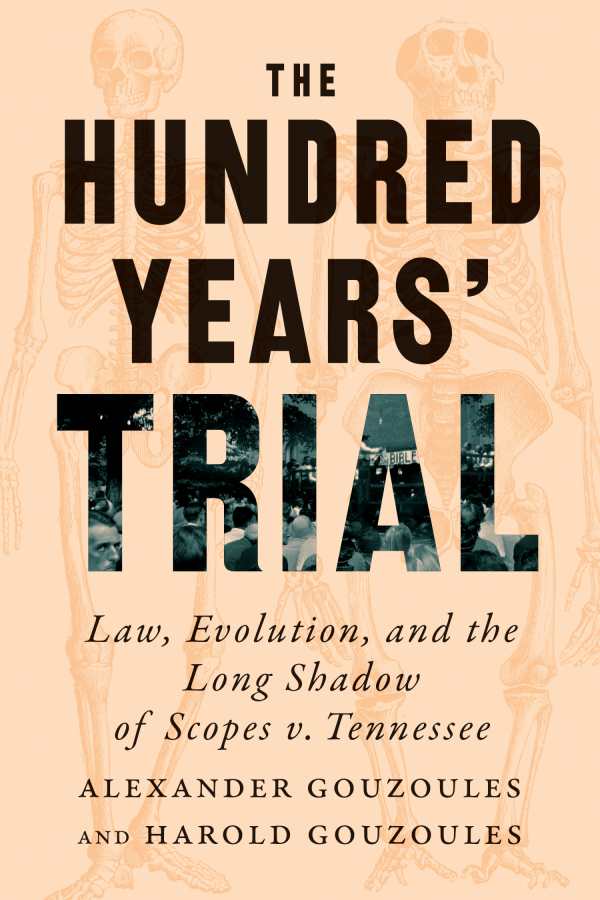The Hundred Years' Trial
Law, Evolution, and the Long Shadow of Scopes v. Tennessee
Laws regarding classroom science curricula are examined in Alexander and Harold Gouzoules’s deft history book The Hundred Years’ Trial.
The Gouzouleses’ scientific and legal expertise informs this fascinating history, which moves from Charles Darwin’s writings in the 1860s through scientific discoveries and legislation in the twentieth century. The 1925 Scopes Trial, one of the US’s most famous court cases, is centered; it concerned teaching evolution in a Tennessee high school, which some found to be at odds with biblical principles.
Examining how courts prioritized science versus other concerns, as of free speech, the book traces ongoing conflicts between the church and state in the wake of Scopes trial. These include a variety of court cases and cultural arguments related to teaching evolution that picked up speed in the late 1960s. Those who contributed to these conversations included biologist Lynn Margulis, whose theories on symbiosis were first considered rebellious but later found acceptance, and acclaimed writer and paleontologist Stephen Jay Gould, who wrote about revisiting the sites of the Scopes trial. The rigor of scientific discussion is demonstrated in quotes and anecdotes from Darwin’s peers and biologists since his time, revealing dramatic contrasts between the scientific process and how those who draft public school policies misrepresent scientific theories. And a closing discussion of science denial is used to address ongoing threats to scholarship as part of a broader trend of beliefs clashing with science, including on topics like abortion rights and climate change.
Combining multiple areas of expertise and making complex science accessible, the cultural history book The Hundred Years’ Trial covers public reactions to evolution theory from Darwin to the present day.
Reviewed by
Meredith Grahl Counts
Disclosure: This article is not an endorsement, but a review. The publisher of this book provided free copies of the book to have their book reviewed by a professional reviewer. No fee was paid by the publisher for this review. Foreword Reviews only recommends books that we love. Foreword Magazine, Inc. is disclosing this in accordance with the Federal Trade Commission’s 16 CFR, Part 255.

